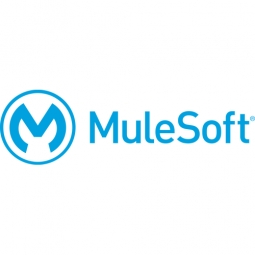下载PDF
GIE-UGIM Case Study
技术
- 应用基础设施与中间件 - API 集成与管理
- 应用基础设施与中间件 - 数据交换与集成
适用功能
- 商业运营
服务
- 系统集成
挑战
GIE-UGIM, a major health insurance consortium for French civil servants, was facing the challenge of continuously improving the services it provides to its over 800,000 members. Improved service increases retention rates and thus improves the financial position of the consortium as a whole. In 2010, GIE-UGIM implemented Silligent CRM as the central customer relationship management system for the group. However, the challenge was integrating the multitude of applications core to GIE-UGIM's business with the new CRM system. They decided an Enterprise Service Bus was the ideal architecture for their needs. They wanted to loosely couple applications with the new CRM system and allow their developers to focus on developing applications that provided value to their members, not protocol and data issues.
关于客户
GIE-Union Groupe Initiatives Mutuelles (GIE-UGIM) is one of France's largest insurance mutual benefit consortiums. With over 800,000 members, the group provides health insurance to a wide array of civil servants. The consortium is comprised of eight individual mutual benefit organizations: Mutuelle Civile de la Défense, Mutuelle des Agents des Impôts, Mutuelle Des Douanes, Mutuelle du Trésor, Mutuelle Générale de l'Economie, des Finances et de l'Industrie. Each of these organizations provides health insurance to a specific French ministry. One of GIE-UGIM's major ongoing challenges is to continuously improve the services it provides to its members. Improved service increases retention rates and thus improves the financial position of the consortium as a whole.
解决方案
GIE-UGIM decided to use Mule ESB to manage integration with the new CRM system. The ESB supports numerous applications with different interfaces and data formats and helps empower a large group of Java developers to be quickly productive. After deciding an ESB was the right architecture, GIE-UGIM began an evaluation of alternatives products to meet this need. They eventually chose Mule ESB over Oracle due to its lower cost and complexity. Mule ESB is 100% Java based and was quite easy for their developers to understand. GIE-UGIM's business is very document heavy. Information comes through a variety of communications destined for members. Some of these documents are received via traditional paper mail, some by email and GIE-UNIM personnel manually enter some into systems directly. Ultimately all documents need to be stored, managed, associated with the member and made accessible to the member. To effectively manage these documents, GIE-UGIM has several applications that need to communicate with its new Silligent CRM system. Each communicates using its own native protocols and formats with Mule as the integration layer to the CRM system.
运营影响





